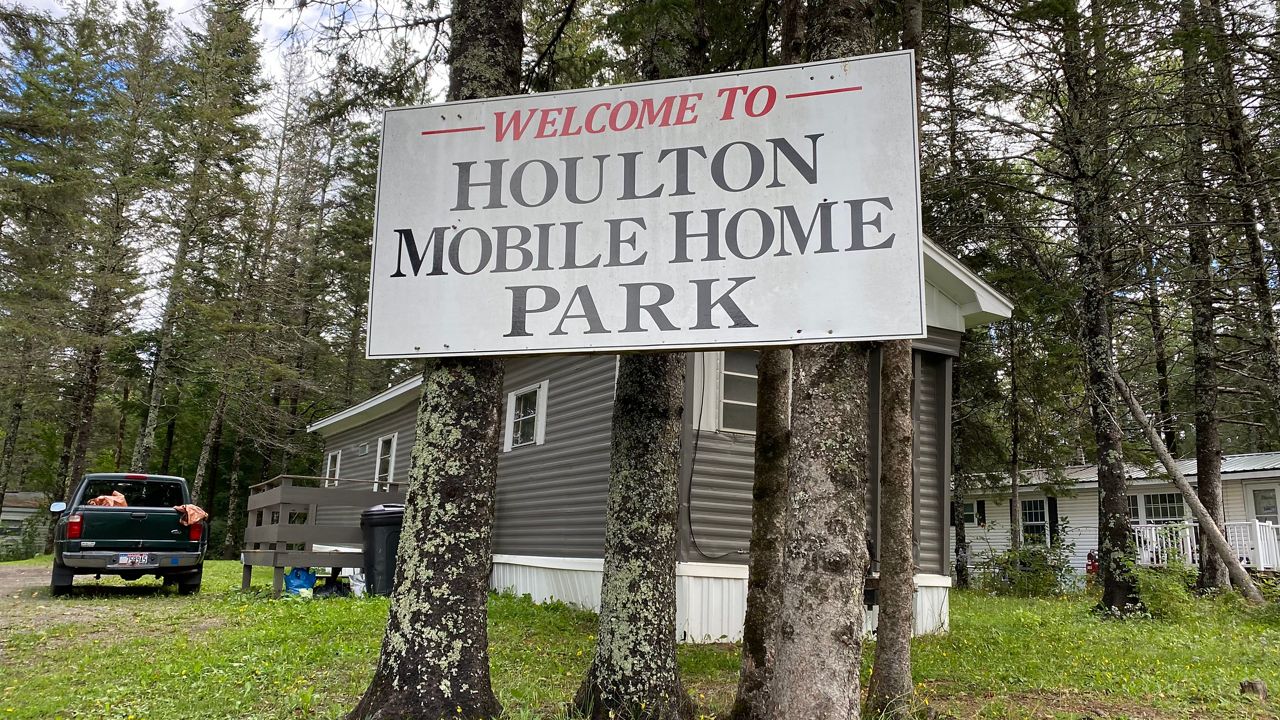Lance Adair and his father get three jugs of water each week at their home in the Houlton Mobile Home Park.
Like the other 80 residents of the park, they can’t drink or cook with the water that comes out of the tap because of high levels of PFAS, a group of chemicals linked to certain health risks, including cancer.
It’s been that way for four years.
A trucker in his 30s looking for a job, Adair said if they have extra water, they share it with their neighbors who have children.
“You learn to live with it,” Adair said. “They also have a plan to fix it.”
High levels of PFAS, known as “forever chemicals” because they do not break down in the environment, have been found in several public and private drinking water supplies in Maine in recent years. Drinking water should not have more than 20 parts per trillion of PFAS, according to state regulations.
In June, the mobile home park had 169 parts per trillion, one of the highest levels in the state, according to data from the Maine Center for Disease Control & Prevention.
The park has the highest number of PFAS of any residential public water system, according to a partial list of water sources from the Maine CDC, where much of the data is still pending. Houlton Mobile Home Park is second only to Bonny Eagle Middle School in Buxton, which topped the list in August at 822 parts per trillion, in overall PFAS levels in public water systems.
Exposure to high levels of PFAS can lead to increased risk of some cancers, including prostate, kidney and testicular and may lead to developmental delays in children, according to the U.S. Environmental Protection Agency.
For residents of the mobile home park, relief should be coming next year when the water and sewer get connected to the town’s system, Greg Sherman, general manager of the Houlton Water Co., said.
Years ago, the mobile home park was part of the town’s water system but in the 1990s the park’s owners decided to drill their own wells, Sherman said.
The park has since been sold and Tony Brettkelly, one of the partners who now owns the mobile home park, said they found out about the contaminated well water shortly after purchasing the park four years ago.
Because they are a private entity, they partnered with the state, town and local utility district to put together the funding to tap in to the public system.
Water and sewer upgrades will cost Brettkelly about $347,000, with the Maine Drinking Water Program kicking in $2.4 million, the local water district $1.3 million and a Community Development Block Grant covering $475,000.
In June, Brettkelly signed a consent order with the state that lays out deadlines for continued water testing and requires the mobile home park to connect to the public water supply by Oct. 1, 2023.
Brettkelly said there are 55 mobile home pads in the park, about 35 of which have homes on them now. Once the work is complete, he plans to market the park as a family-friendly housing option.
“It’s been a tough road,” he said. “We’ve really worked at trying to make it the best situation possible.”
Nancy Ketch, Houlton’s community development director, said when applying for a grant to pay for the new sewer system, she collected data that showed of the 80 residents, seven are elderly, five are severely disabled and 10 are female heads of household.
“It’s a population of people who are in need and may otherwise have trouble accessing housing,” Ketch said. “If they’ve got a house up there, we want them to be safe.”
Like most parts of the state, housing can be difficult to find in Houlton, a northern Maine town of just over 6,000 residents on the Canadian border. The problem was compounded by a fire in March that destroyed a 14-unit apartment building that housed about 30 people and killed a 4-year-old boy, she said.
The shortage makes it all the more important to improve the existing housing stock.
“If we have the existing housing, we want to make sure it’s safe,” she said.



